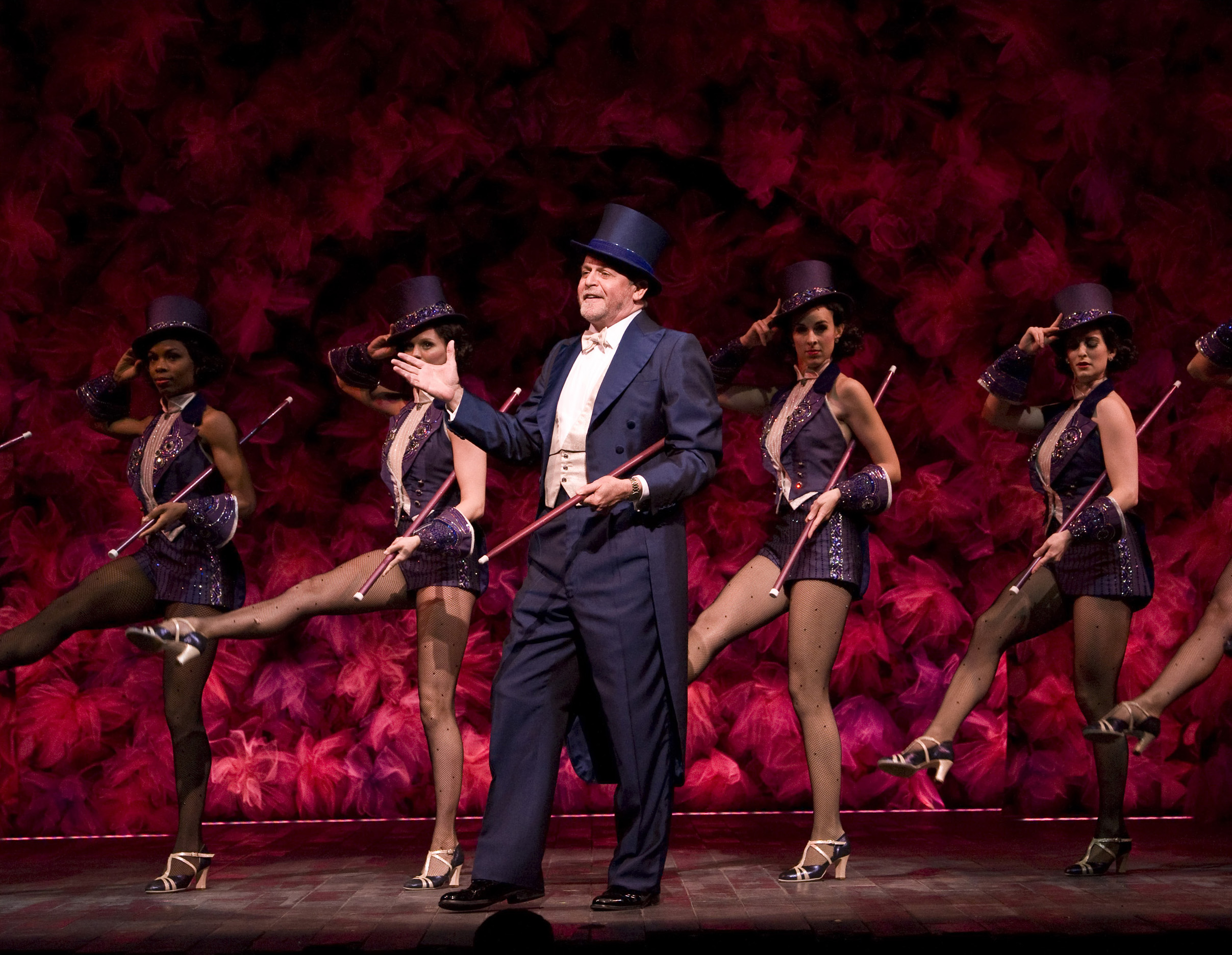With a decadence not always completely embraced in the theater scene, “Follies” brings together the essentials of a musical in a captivatingly heartfelt and yet entertaining mold. From its incredible cast to its powerful score and exquisite costumery, “Follies” is artistic indulgence done right.
A study of the regrets and missed opportunities that inevitably arise over the years, the musical focuses on Phyllis (Jan Maxwell), Sally (Victoria Clark) and their respective partners, Ben (Ron Raines) and Buddy (Danny Burstein).
Each is on the cusp of, if not completely immersed in, his or her own midlife crisis, creating a show that pinpoints an aspect of life perhaps not readily applicable to younger audiences. However, the overarching theme of how decisions can forever influence one’s future and happiness is something to be considered by all.
The story takes place at a reunion party for the Weissmann Follies showgirls and is set against the backdrop of a dilapidated old theater in 1971. Two of these showgirls are Phyllis and Sally, who became friends and met their spouses while working on the show.
The excitement of the party works to contrast the somewhat somber and heartbreaking story of the two couples. Haunted by their pasts and their thoughts, the sentiment is paralleled by the crumbling theater itself.
Phyllis is the discontented wife of Ben, a man so distracted by his past that he fails to notice and appreciate what he has, instead concerning himself with what could have been.
Sally is Buddy’s naive and somewhat unstable wife who grasps at the straws of a misbegotten romance with Ben. Buddy, fully aware of his wife’s true desires, is hopeless in his attempts to win her back and fights his frustration with a situation he can’t control.
In her role as Phyllis, Maxwell delivers a performance as strong as the character herself, communicating her prowess as a performer through her awe-inspiring renditions of “Could I Leave You?” and “The Story of Lucy and Jessie,” both of which make audience members want to jump up and cheer for Phyllis.
Burstein’s equally unforgettable performance of “The God-Why-Don’t-You-Love-Me Blues” rips open Buddy’s character. A musical number unmistakably made for the stage, it exposes the true feelings of the couple toward each other and makes obvious to the audience the full extent of Buddy’s dilemma.
The performances of Clark and Raines undercut the vivacity and showy nature of the other songs. While Phyllis and Buddy are defined by their energy and power, Sally and Ben are understated and more direct in expressing sadness.
Both Clark and Raines, in their respective numbers, deliver performances that rumble with contained distress, fitting the qualities of Sally and Ben themselves: quietly and yet undeniably conflicted.
The haunting youths of the characters appear throughout the show, giving insight into the history of the four main characters. This, coupled with the songs, delves into the harsh truths of life, resulting in the inevitable realization that sometimes what one expects and hopes for is rarely the outcome.
Besides the remarkable roles of the main four characters, two other numbers were particular standouts. “Who’s That Woman?” perhaps the most showtune-esque song in the musical, led by Stella (Terri White), is engrossing in its sheer level of energy.
However, the extravagance somewhat unintentionally distracts from the lyrics of the song that illuminate so well the inner demons the women are battling. “I’m Still Here,” performed by Carlotta (Elaine Paige), is triumphant in both its theme and Paige’s incomparable musicality and mesmerizing air.
As indicated by the standing ovation given by theatergoers that evening, “Follies” proves to be as satisfying to the avid musical-theater lover as it is to those just looking for a good show.
